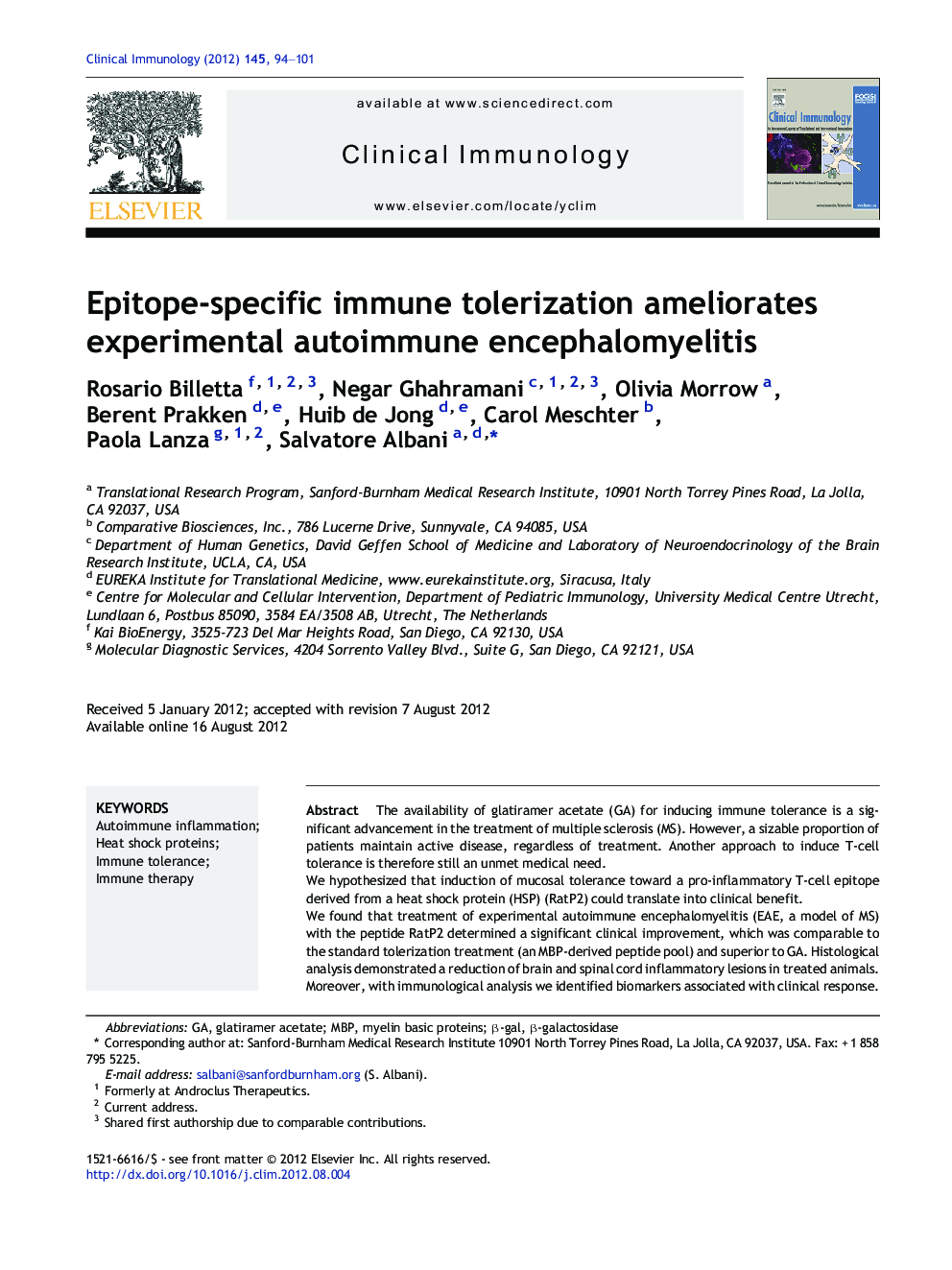| Article ID | Journal | Published Year | Pages | File Type |
|---|---|---|---|---|
| 3257126 | Clinical Immunology | 2012 | 8 Pages |
The availability of glatiramer acetate (GA) for inducing immune tolerance is a significant advancement in the treatment of multiple sclerosis (MS). However, a sizable proportion of patients maintain active disease, regardless of treatment. Another approach to induce T-cell tolerance is therefore still an unmet medical need.We hypothesized that induction of mucosal tolerance toward a pro-inflammatory T-cell epitope derived from a heat shock protein (HSP) (RatP2) could translate into clinical benefit.We found that treatment of experimental autoimmune encephalomyelitis (EAE, a model of MS) with the peptide RatP2 determined a significant clinical improvement, which was comparable to the standard tolerization treatment (an MBP-derived peptide pool) and superior to GA. Histological analysis demonstrated a reduction of brain and spinal cord inflammatory lesions in treated animals. Moreover, with immunological analysis we identified biomarkers associated with clinical response.This work provides proof-of-concept to support the further testing of this approach as a possible complement to currently available therapies for MS.
► Treatment with an HSP-derived peptide achieved a significant clinical improvement. ► The observed improvement was comparable or superior to the standard treatments. ► The peptide led to a reduction of brain and spinal cord inflammatory lesions. ► Immunological analyses identified biomarkers associated with the clinical response.
